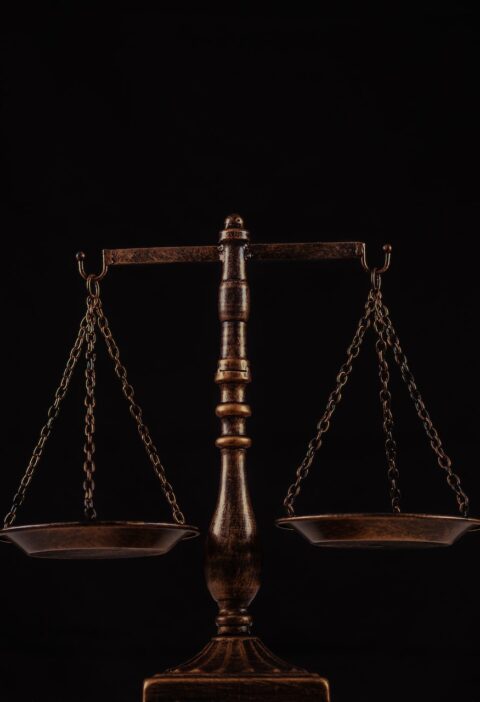Insurance is a contract between you and your insurance company, where you pay a premium in exchange for coverage in case of certain events. When you file a claim, you expect your insurance company to act in good faith and honor the policy terms. However, sometimes insurance companies act in bad faith and deny, delay, or underpay your claim without a valid reason.
This can cause you financial hardship, emotional distress, and legal trouble. If you are a victim of insurance bad faith, you need an experienced lawyer to help you fight for your rights and recover the compensation you deserve. A good option is to contact a Nevada firm specializing in insurance bad faith cases, such as the Law Office of Matthew L. Sharp. They have the knowledge and skills to handle your case effectively and professionally.
What is Insurance Bad Faith?
Insurance bad faith is a legal term that describes when an insurance company breaches its duty of good faith and fair dealing towards its policyholder. This duty is implied in every insurance contract and requires the insurance company to act honestly, fairly, and reasonably when handling claims.
Insurance bad faith can take many forms, such as:
- Denying a valid claim without a reasonable basis
- Delaying the investigation or payment of a claim.
- Failing to communicate with the policyholder or provide an explanation for the denial
- Misrepresenting or omitting relevant facts or policy provisions
- Offering an unreasonably low settlement
- Refusing to defend or indemnify the policyholder against third-party claims
Insurance bad faith can occur in any type of insurance, such as auto, home, health, life, disability, or liability insurance. It can also affect first-party claims (where you seek coverage from your insurance company) and third-party claims (where someone else seeks coverage from your insurance company).
What are the Examples of Insurance Bad Faith in Nevada?
To illustrate how insurance bad faith can happen in real life, here are some examples of cases that have occurred in Nevada:
- A Las Vegas man was denied a specific type of cancer treatment by his insurer, despite having an active policy that covered it. The court found that the insurer acted in bad faith by failing to provide a reasonable basis for denying the claim.
- A car accident victim claims medical expenses, but the insurer denies the claim for violating the policy terms. The court finds that the insurer acted in bad faith by failing to provide evidence or explain the denial of the claim.
- A fire victim claims damages for their home, but the insurer delays the claim for several months. The court finds that the insurer acted in bad faith by causing undue delay without a valid reason.
These cases show how insurance bad faith can harm policyholders and how Nevada law protects their rights.
How to Prove Insurance Bad Faith in Nevada?
To prove insurance bad faith in Nevada, you need to show that:
- You had a valid insurance policy with the insurer
- You filed a claim that was covered by the policy
- The insurer denied, delayed, or underpaid your claim
- The insurer did not have a reasonable basis for its action
- The insurer knew or should have known that its action was unreasonable
Proving insurance bad faith can be challenging, as insurance companies often have sophisticated legal teams and resources to defend themselves. They may also try to use various tactics to avoid liability, such as:
- Claiming that your claim was fraudulent or exaggerated
- Arguing that your claim was excluded or limited by the policy
- Blaming you or a third party for causing or contributing to the loss
- Offering a lowball settlement to discourage you from pursuing legal action
To overcome these obstacles, you must gather and preserve as much evidence as possible to support your claim. This may include:
- A copy of your insurance policy and any relevant correspondence with the insurer
- Photos, videos, receipts, invoices, estimates, or reports that document your loss and damages
- Medical records, bills, or statements that show your injuries and treatment
- Witness statements, police reports, or expert opinions that corroborate your claim
- Any other information that shows the insurer’s bad faith conduct or motive
You also need to consult a qualified and experienced insurance bad faith lawyer who can help you evaluate your case, negotiate with the insurer, and represent you in court if necessary.
How to File an Insurance Bad Faith Lawsuit in Nevada?
If you think your insurance company has acted in bad faith, you may be able to sue them for compensation. Here are the steps you need to follow:
Step 1 – Notification to the Insurance Company
You must inform your insurer of your claim and allow them to investigate and resolve it. This is required by Nevada Revised Statutes (NRS) 686A.310, which protects policyholders from unfair practices by insurers.
Step 2 – Follow the Statute of Limitations
You have a limited time to file a lawsuit against your insurer. In Nevada, the deadline is three years from the date of the breach of duty by the insurer. If you miss this deadline, your case may be dismissed.
Step 3 – Filing a Complaint
To start the lawsuit, you must prepare and file a complaint with the appropriate court. The complaint should include the facts of your case, the legal basis for your claim, and the relief you seek. You must also serve a copy of the complaint to the insurer and any other parties involved.
Step 4 – Engaging in the Discovery Process
The discovery process allows both sides to gather information and evidence for their case. You may have to answer questions, provide documents, give testimony, or admit facts. Discovery helps both sides prepare for trial and possibly reach a settlement.
Step 5 – Preparing for Trial
If the case goes to trial, you will present your case to a judge or jury. You will have to prove your claim with a preponderance of the evidence, meaning it is more likely true than not. The insurer will also present its defense and try to disprove your claim. The judge or jury will decide the outcome and award damages if applicable.
Conclusion
Insurance bad faith seriously violates the trust and contract between policyholders and insurers. It can cause significant harm to policyholders, who may face financial losses, emotional distress, and legal complications. Nevada law recognizes the rights of policyholders to seek justice and compensation for insurance bad faith. However, proving insurance bad faith can be difficult and complex, requiring the assistance of a skilled and experienced lawyer.







